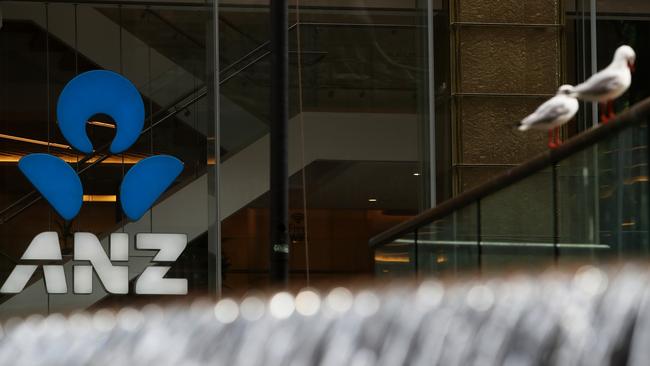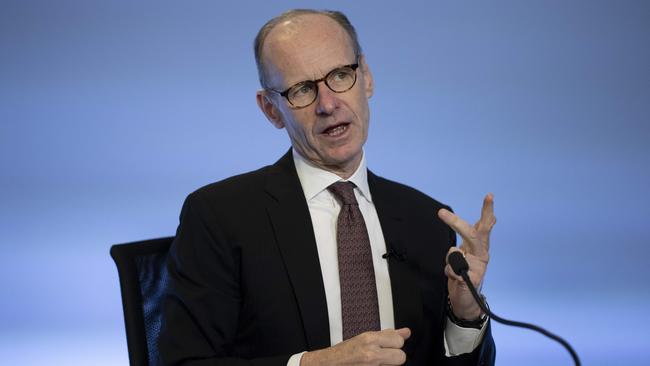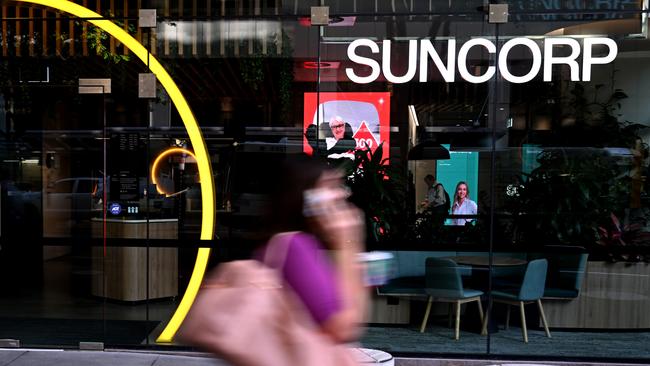‘Peak stress’ has passed, ANZ chief Shayne Elliott says
The scandal-hit banking giant says the Australian economy is still strong, with high jobs growth and a low number of bad loans.

Banking major ANZ says customers have passed “peak stress”, despite a rise in arrears and loan loss provisions, with the bank’s CEO cautioning that Donald Trump’s White House return would not spell doom and gloom for its Asian customers.
Unveiling an 8 per cent annual cash profit fall to $6.7bn on Friday, short of market expectations, ANZ said it was being squeezed by higher costs, lower returns and the lumpy integration of Suncorp Bank and new technology systems.
But chief executive Shayne Elliott said the Australian economy had passed its period of peak stress, with many borrowers and businesses having adjusted to higher interest rates.
Mr Elliott said it was clear customers were hurting, but he had been surprised by how so many borrowers had been prepared for the downturn.
ANZ lifted its provisions to $406m in the period, booking a $224m increase after swallowing up Suncorp Bank in July. Suncorp Bank’s $4.9bn acquisition was partly reflected in ANZ’s results, with the bank loading up on provisions to cover the new loans of the Queensland lender.
But Mr Elliott said that, despite the lift in provisions, actual loan losses within the bank remained surprisingly low with just 0.84 per cent of home borrowers more than 90 days behind on their mortgages.
“It’s not even back to where it was pre-Covid,” he said.
Mr Elliott said ANZ’s customers hit “peak stress” in June-July, and that the stress had since flatlined.
“There are some emerging signs, green shoots … that it may be starting to get a bit better,” he said.
Mr Elliott also said he expected a rate cut in the coming months, after the US Federal Reserve reduced rates by 25 basis points overnight on Thursday.
“The smart money is on the fact that the next movement will be a cut here in Australia, and I think that’s eminently sensible,” he said.
But he said the Reserve Bank would be more driven by Australia’s economic conditions, and he didn’t expect a “deterioration from here”.
“At the same time there’s still lots and lots of signs of stress and people doing it really hard,” he said. “So it’s quite difficult to balance those two things and decide: Does that mean we’re going to get a rate cut this side of Christmas? Early in the new year or later next year? I don’t know.”
ANZ pointed to its historically low credit impairments as a sign of the strength of its retail bank, noting it had seen above system growth in both home lending and deposits both up 7 per cent in the year.
But Mr Elliott said ANZ was facing “competition and inflation” across the bank, with rivals fighting it out for market share in home lending and deposits.
Mr Elliott said the pricing fight in home mortgages, with some being written below the cost of capital, was a “relatively new phenomena”, and that it had been a “shock, it’s come so fast and quick”.
He said industry-wide challenges remained in banking, pointing to ANZ’s strength in institutional banking as a bolstering factor for the lender.
Despite this, Mr Elliott said ANZ had posted its strongest revenue result for a second half, topping $20.8bn.

Consulting firm KPMG said the banking sector had reported a combined 5.7 per cent downturn in profits in the 2023 financial year, with total returns across the majors hitting $29.9bn.
KPMG Australia’s head of banking and capital markets, David Heathcote, said the results “demonstrate resilience despite competition continuing to squeeze margins during a period of sustained ongoing economic uncertainty”.
ANZ’s net interest margins lifted two basis points over the second half of the year, taking its lending margin to 1.58 per cent, up from 1.56 earlier in the year, in line with expectations.
Mr Elliott also sought to quell fears the newly elected Trump administration would pose a problem for the bank’s international operations.
ANZ, Australia’s biggest institutional bank, operates across Southeast Asia providing critical trade flows and cash management for companies in the region.
Mr Elliott said it was likely some countries would see their trade fortunes squeezed by mooted tariffs, but said other nations might benefit.
“Where the trade flows, where the ships go, that will shift, that’s a good thing for ANZ,” he said.
ANZ’s retreat from retail banking in Asia, after the sale of its $444m stake in Malaysian lender AmBank, also continued in the period, with the cash funnelled into a $2bn share buyback still under way.
But at home ANZ is pushing forward with its new core banking platform ANZ Plus, with 9 per cent of all deposits, or $16bn, on the system.
Mr Elliott said ANZ Plus could slash costs on delivering new home loans in the double digits, while the platform’s savings products were “40-odd per cent cheaper to run”.

ANZ plans to limit access to its legacy banking platform by 2027, with moves to roll Suncorp Bank customers into ANZ Plus in the coming years as a major stress test of the technology system.
Mr Elliott also said the bank was focusing on improving non-financial risk practices in the wake of a $250m penalty from the prudential regulator amid a scandal in the markets business.
“This, along with continuing to drive a strong speak-up culture, is a key focus of mine as CEO – as well as across the bank more broadly,” he said.
The bank declared a final dividend of 83c a share, 70 per cent franked, taking total returns to $1.66 a share.
Citi banks analyst Brendan Sproules said ANZ had delivered a “soft result that missed market expectations”, noting the bank’s management “will need to bridge the opportunity between current investment and future returns for investors to gain more comfort with the numbers”.
ANZ shares traded down more than 1 per cent in early trading, before closing up 1.2 per cent at $32.09.







To join the conversation, please log in. Don't have an account? Register
Join the conversation, you are commenting as Logout